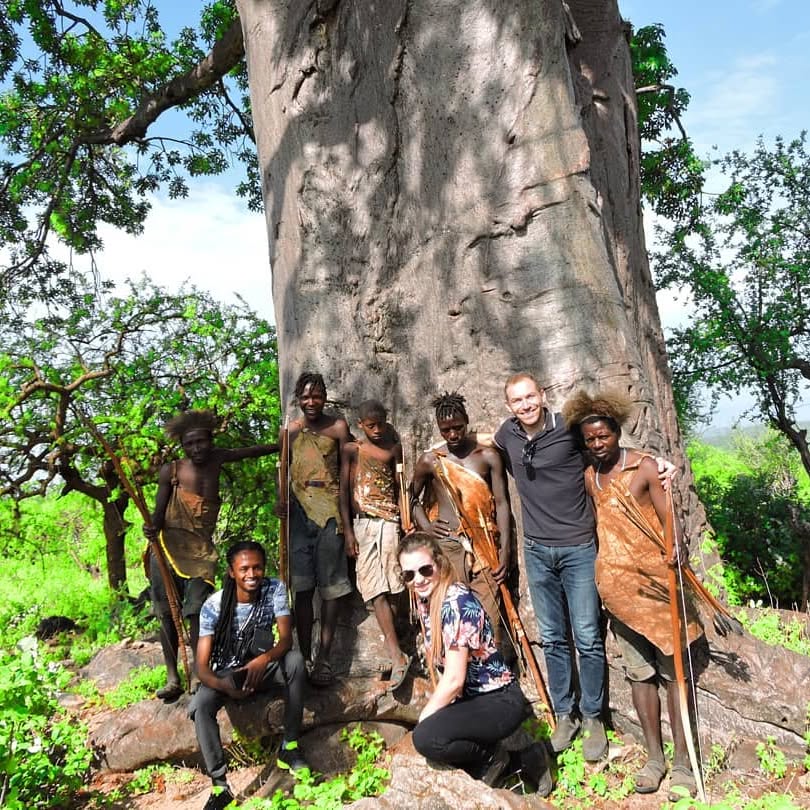The hadzabe Tribe
The Hadzabe tribe is an indigenous ethnic group in northern Tanzania, primarily residing around the Lake Eyasi region. Known as one of the last remaining hunter-gatherer societies in Africa, the Hadzabe live a nomadic lifestyle, relying on hunting game with bows and arrows and foraging for wild fruits, roots, and honey. They speak a unique click language and maintain a culture that has remained largely unchanged for thousands of years. Deeply connected to nature, the Hadzabe are admired for their self-sufficiency, survival skills, and strong sense of community, offering a rare and authentic glimpse into prehistoric human life.
They mainly wear animal skins and go along with nature, washing themselves with rainwater and healing themselves with herbs. When food or water in the area where they are settled begins to run out, the tribe moves on to other places, and so on, allowing for the restoration of flora and fauna.
Arriving Hadzabe, you will be immediately welcomed by the chief of the tribe and high-ranking members, experiencing memorable moments with them, experimenting with their customs and traditions; their dances and the art of archery. Should you wish you can also accompany the men on a hunt, or the women in gathering. Their only sources of income are tourist visits, the proceeds of which are partly paid to them, and the sale of some simple jewellery.
What Makes the Hadzabe Tribe’s Way of Life So Unique?
The Hadzabe tribe lives a nomadic lifestyle, moving with the seasons and relying entirely on hunting and foraging for survival. Using bows and poison-tipped arrows, they hunt small game like baboons, birds, and antelope, while also gathering roots, tubers, berries, and wild honey. Their daily activities are closely tied to nature, with no concept of agriculture, livestock, or permanent shelters. Their simple huts made from grass and branches are often abandoned and rebuilt as they migrate.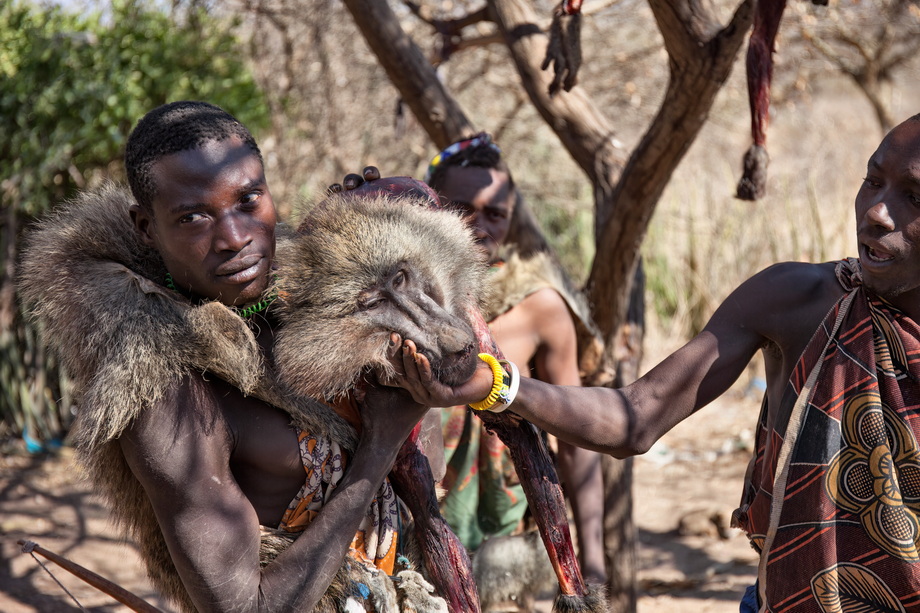
Language and Culture of Hadzabe
The Hadzabe speak a unique click language, similar to that of the San people of southern Africa. This complex language, rich with clicking sounds, is entirely oral, with no written script. Their oral traditions, storytelling, dance, and music play a crucial role in preserving their heritage. Despite modern influences and pressures from nearby communities, the Hadzabe fiercely protect their cultural identity and ancestral lands.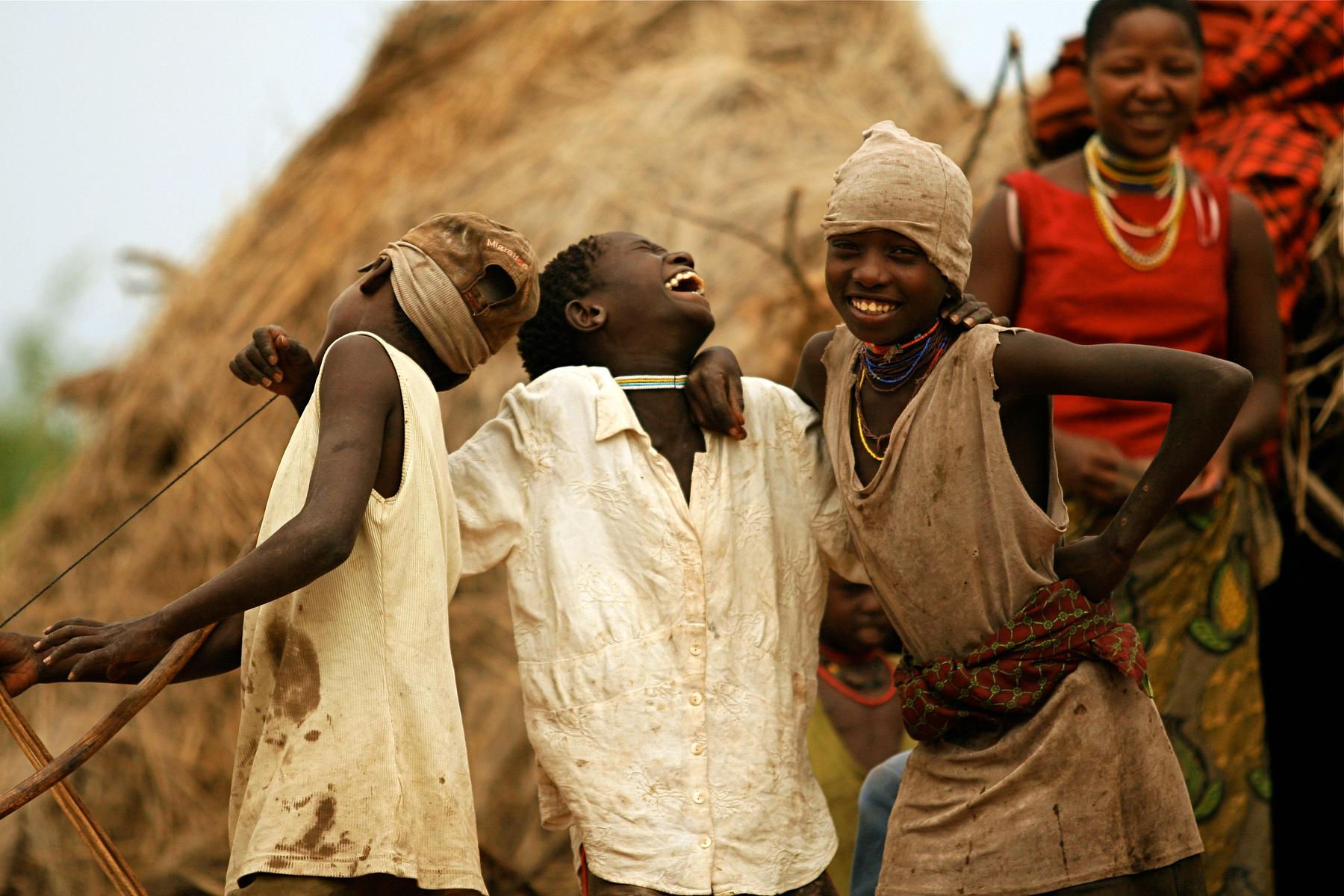
How Does Responsible Tourism Help Preserve the Hadzabe Culture?
A visit to the Hadzabe community is a highlight for travelers seeking authentic cultural encounters in Tanzania. Many tours from Karatu or Lake Eyasi offer guided experiences where visitors can join the Hadzabe on a hunt, learn how they make fire from sticks, and engage in traditional dances. It’s essential to travel with ethical tour operators who respect the tribe’s autonomy and contribute to sustainable tourism efforts.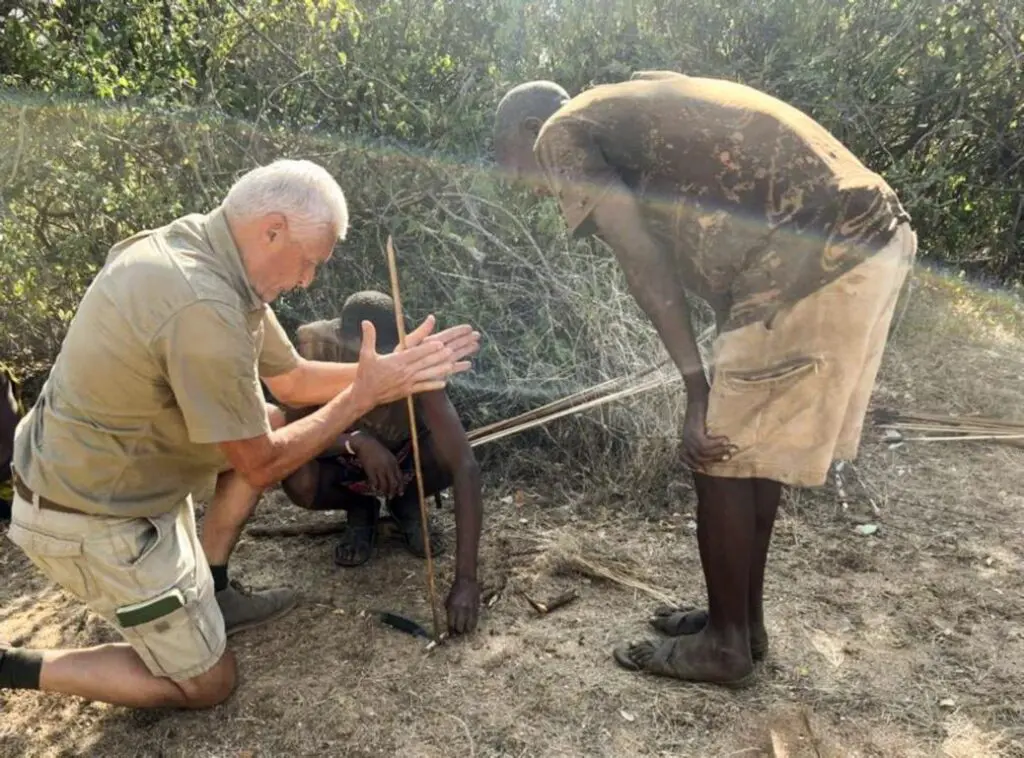
Datoga Tribe
The Datoga tribe is an indigenous ethnic group primarily found in the northern Tanzania regions, particularly around Lake Eyasi and the Ngorongoro Highlands. Known for their exceptional blacksmithing skills, the Datoga have a rich tradition of crafting metal tools, including arrowheads, spear tips, and jewelry. They are primarily pastoralists, herding cattle, goats, and sheep, which are central to their economy, social status, and cultural practices. The Datoga people have a distinctive lifestyle, characterized by their nomadic nature, colorful body decorations, and the practice of facial tattooing. Despite external pressures and modern changes, the Datoga continue to preserve their ancient customs, language, and traditional way of life.
The Datoga tribe is deeply connected to their land and traditions, with livestock playing a central role in their daily lives and cultural rituals. As semi-nomadic herders, the Datoga often move in search of better grazing lands for their animals, maintaining a sustainable lifestyle that has been passed down for generations. In addition to their blacksmithing expertise, the tribe is also known for their intricate beadwork and the use of natural dyes to create striking jewelry and clothing. While they share some similarities with neighboring groups like the Maasai, the Datoga have distinct customs, including their unique language and the practice of body modification through tattoos. Despite facing challenges from modernization and land encroachment, the Datoga continue to honor their cultural heritage, making them a fascinating and resilient part of Tanzania’s diverse ethnic mosaic.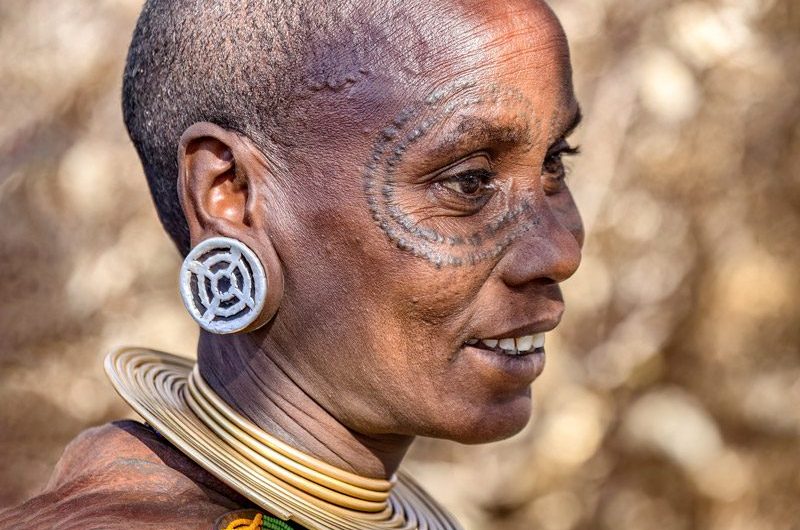
What Makes the Datoga Tribe’s Way of Life So Unique?
Datoga tribe’s way of life so unique is their deep-rooted connection to their land and livestock-centered existence. Unlike many modern societies, the Datoga people live a semi-nomadic lifestyle, constantly moving in search of better grazing lands for their cattle, goats, and sheep, which are not only essential for food but also central to their social status and cultural identity. Their exceptional blacksmithing skills set them apart, as they create handcrafted metal tools, including arrowheads, knives, and jewelry, using traditional methods passed down for generations. The tribe’s distinctive body art, including facial tattoos and ochre body paint, along with their vibrant beadwork and leather clothing, further highlight their unique cultural expressions. Despite the pressures of modernization and land loss, the Datoga maintain a lifestyle that closely ties them to their ancestral customs, making them one of Tanzania’s most resilient and fascinating tribes.
Language and Culture of Datoga
The language and culture of the Datoga tribe are deeply intertwined with their traditional way of life. The Datoga language, also known as Datogah, belongs to the Cushitic language family and is predominantly spoken within the community. It is an oral language, passed down through generations and used for everyday communication, storytelling, and oral traditions. The Datoga people also interact with neighboring tribes like the Maasai and Hadzabe, often using Swahili for trade and communication.
Culturally, the Datoga are known for their distinctive attire, including leather garments and intricate beadwork, which serve as a symbol of their identity and social status. Facial tattoos and body markings are central to Datoga cultural practices, signifying beauty, maturity, and family lineage. Their customs and traditions are deeply rooted in their nomadic pastoralist lifestyle, where livestock plays a pivotal role in their rituals, marriage practices, and ceremonies. The tribe’s rich storytelling tradition and dance further reflect their values of community, resilience, and the preservation of their heritage. Despite modern challenges, the Datoga people continue to honor their ancestral practices and proudly maintain their cultural uniqueness.
What Should You Know Before Visiting the Datoga Tribe Ethically?
Before visiting the Datoga tribe ethically, it’s important to first educate yourself about their customs, traditions, and way of life to ensure a respectful approach. The Datoga are a nomadic pastoralist community, and understanding their livestock-centered lifestyle and cultural practices will help you appreciate their values and daily routines. Always approach with respect and sensitivity, recognizing that they are not a tourist attraction but a living, thriving group with deep cultural significance. Permission should always be sought before taking photos or engaging in any activities, as some aspects of their culture may be private or sacred.
Additionally, traveling with an ethical tour operator is crucial. These operators collaborate directly with the tribe to ensure that the community benefits from tourism, whether through sustainable initiatives or economic support. It’s essential to respect the privacy and personal space of the people you meet, avoiding any disruptions to their way of life. Be mindful of your environmental impact, and if you wish to support the community, consider purchasing authentic, locally-made crafts. By being culturally sensitive and supporting responsible tourism, you can help preserve the Datoga’s heritage while having a meaningful and respectful travel experience.
Generally,
both the Hadzabe and Datoga tribes offer unparalleled cultural experiences that provide valuable insights into Tanzania’s rich heritage. The Hadzabe, with their ancient hunter-gatherer traditions, and the Datoga, known for their masterful blacksmithing and pastoralist lifestyle, represent two of the most fascinating and resilient communities in northern Tanzania. Visiting these tribes is an opportunity to engage with authentic traditions, witness age-old craftsmanship, and learn from their deep connection to the land. It’s essential to approach these encounters with respect, cultural sensitivity, and a commitment to responsible tourism to ensure their way of life is preserved for future generations.
For those looking to explore the cultural richness of the Hadzabe and Datoga tribes in comfort and style, Afrima Luxury Travel offers exclusive tour packages that seamlessly blend adventure with luxury. With Afrima, you can enjoy a customized experience that includes guided visits to these tribes, ensuring a respectful and immersive cultural exchange while benefiting the local communities. From luxury accommodations to expert guides and well-planned itineraries, Afrima Luxury Travel ensures that your journey through northern Tanzania is both unforgettable and ethically responsible.




